The State Council held for 15 years under arrest due to the fight against the military junta, and became the Nobel laureate, but lost respect due to the denial of the genocide in the country.
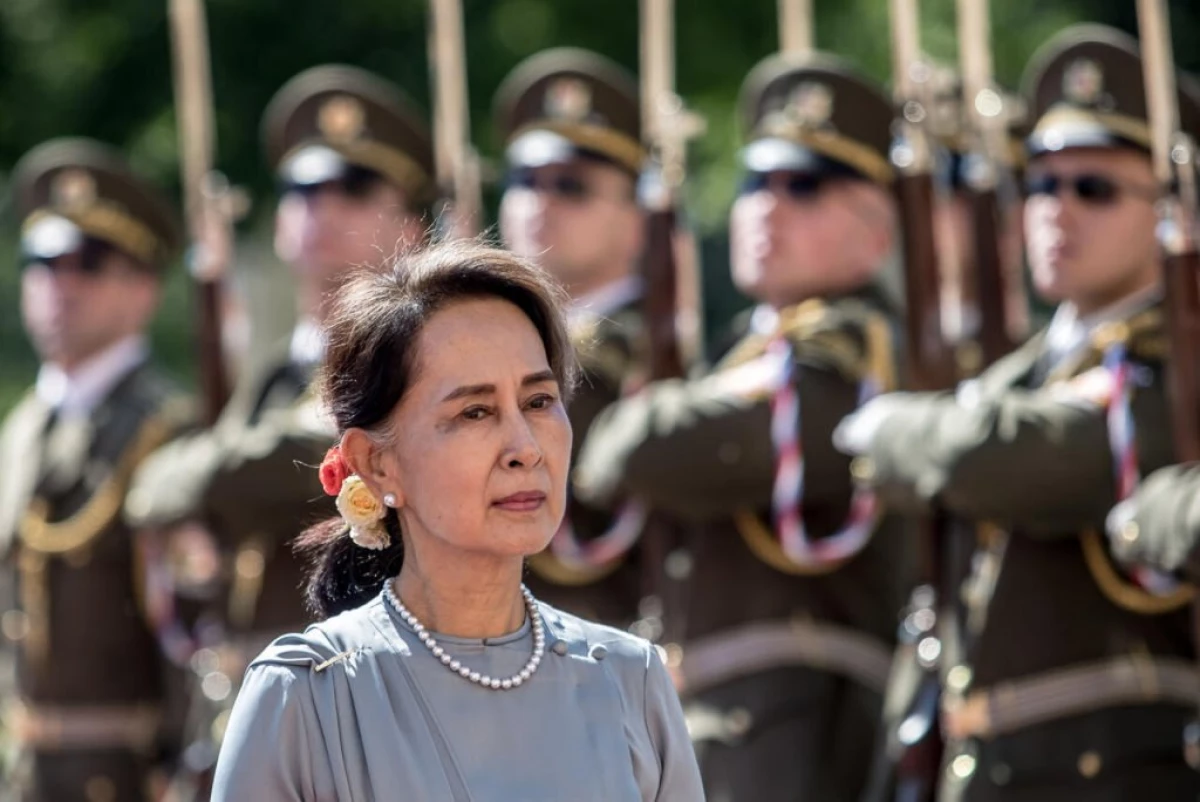
On February 1, the military junta Myanmar arranged a military coup in the capital of Napyido: she detained President of Miin's wines, as well as the State Council and the actual leader of the country Aun Sud Su Ji. The policy has an unusual fate: in the early 1990s, she fought with a military dictatorship in Myanmar, for which she was held under house arrest for 15 years. San Sud became the first politician in the country and the hero in the West for the desire for democracy: she was presented with the Nobel Prize of the world, compared with Nelson Mandela, Luc Besson took off his film about her story, and U2 wrote a song.
But everything changed when SU SU refused to recognize the genocide against Muslims in Myanmar - Western politicians turned away from her and selected awards. Now her political career prevented a military coup due to allegedly falsified results of parliamentary elections.
The detained state council fought for democracy - and for it was already arrested for 15 years
Aun San Su Zhi - the daughter of the murdered general and fighter for the independence of Myanmar Aun Sana and the ambassador of the country in India to Khin Zhi. The future politician studied in Oxford and lived with her husband and two children in the UK, and returned to Myanmar in 1988 to care for a sick mother - then rallies began in the country with the requirement of democracy. San Sud became the face of protests against military authorities, promoting the idea of peaceful rallies to achieve free elections - at the same time, she founded the party "National League for Democracy".
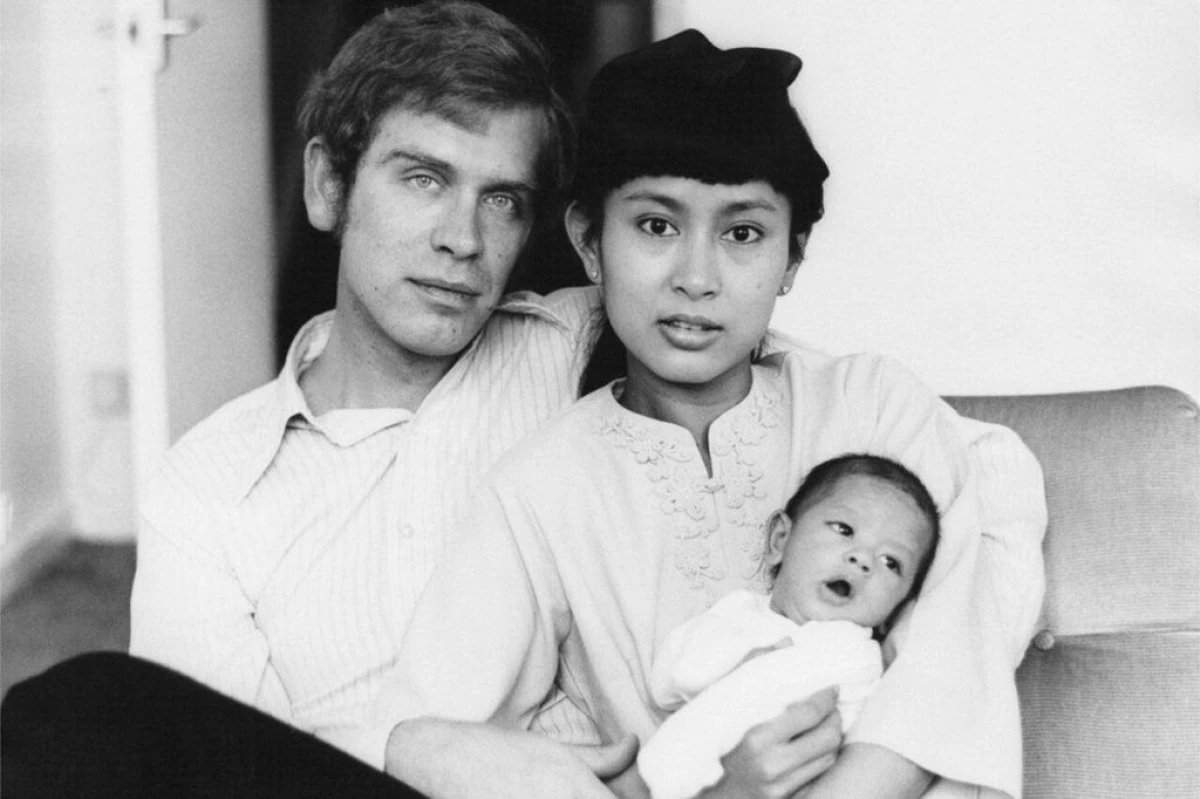
A coup happened to the country, and the authorities received the military, harshly suppress the protests. In 1989, SU SU was sent under house arrest, offering her liberation if she leaves the country, but she refused. A year later, in the elections, the "National League for Democracy" party received 80% of places in parliament, but the military refused to transfer power.
In the early 1990s, he received two awards for defending human rights at once: the European Commission presented the Sakharov Prize, and the UN is the Nobel Prize of the World. In 1995, politics released, but regular arrests due to collisions of interests with military junta did not stop until 2010 - a total of 15 years under house arrest. With the liberation and establishment of relations between the SU SU and the authorities helped the UN.
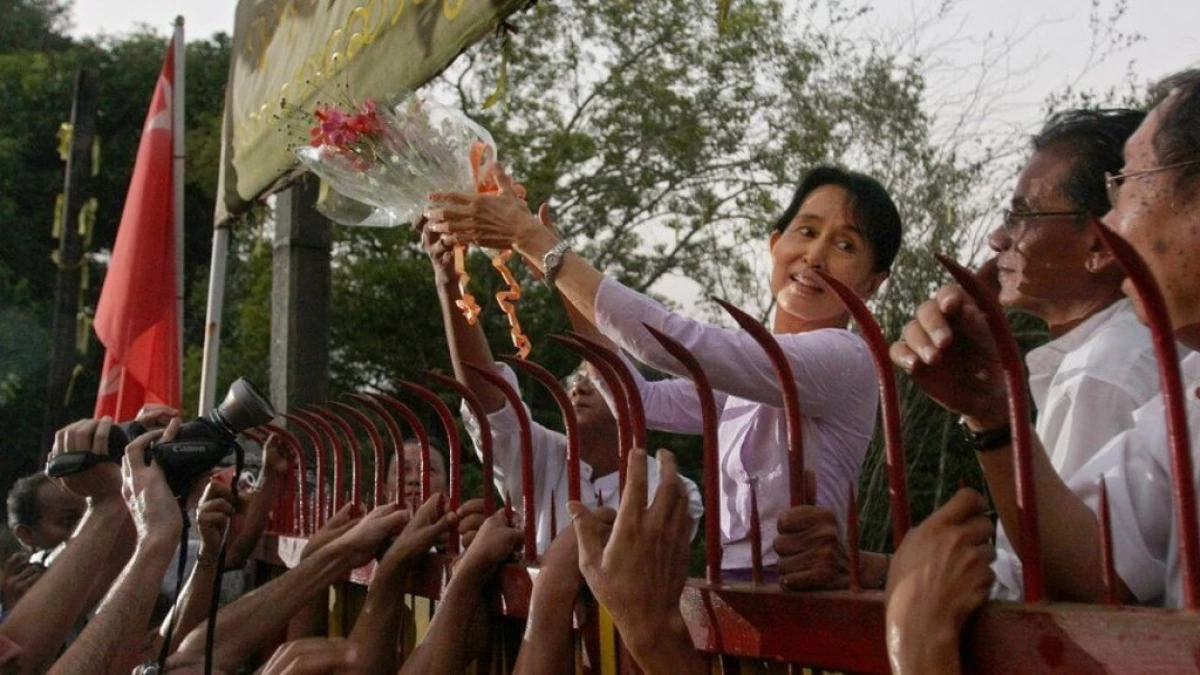
In 2012, the Democratic Party of San Sud participated in the elections to parliament - then she was first allowed to speak on public television. The politician continued to insist on the abolition of "repressive laws", the establishment of freedom of citizens and honest courts. San Sud criticized the actions of the military junta, but this part of the speech was censored. The "National League for Democracy" won 43 districts from 45, and San Su became a deputy of the Lower Parliament.
Three years later, the party won the elections in both chambers of parliament, taking most of the places. According to the law, a quarter of places in the legislative authority was assigned to the military, which allowed them to participate in the political life of the country despite the decision of the citizens. The military peacefully passed the power of the Democratic Party.
In 2016, SU SU was prescribed to the post of Minister of Foreign Affairs and the State Council of Myanmar (analogue of the Prime Minister). She could not become president, since her husband is British, which is a restriction on local laws. Despite this, San Su became actually the Mianma leader.
The attention of Western politicians was chained to SU SU, Barack Obama called it "Lighthouse of Hope for 50 million people seeking justice. After her release, Hilary Clinton met with a politician, noting that this could be a step towards establishing relations between the United States and Myanmar. She became the second woman speaking in both chambers of the British Parliament. Canada issued San Su Honorary Citizenship, and in Paris, they also appointed an honorary citizen. Politics were repeatedly compared with Nelson Mandela - one of the most famous fighters for human rights.
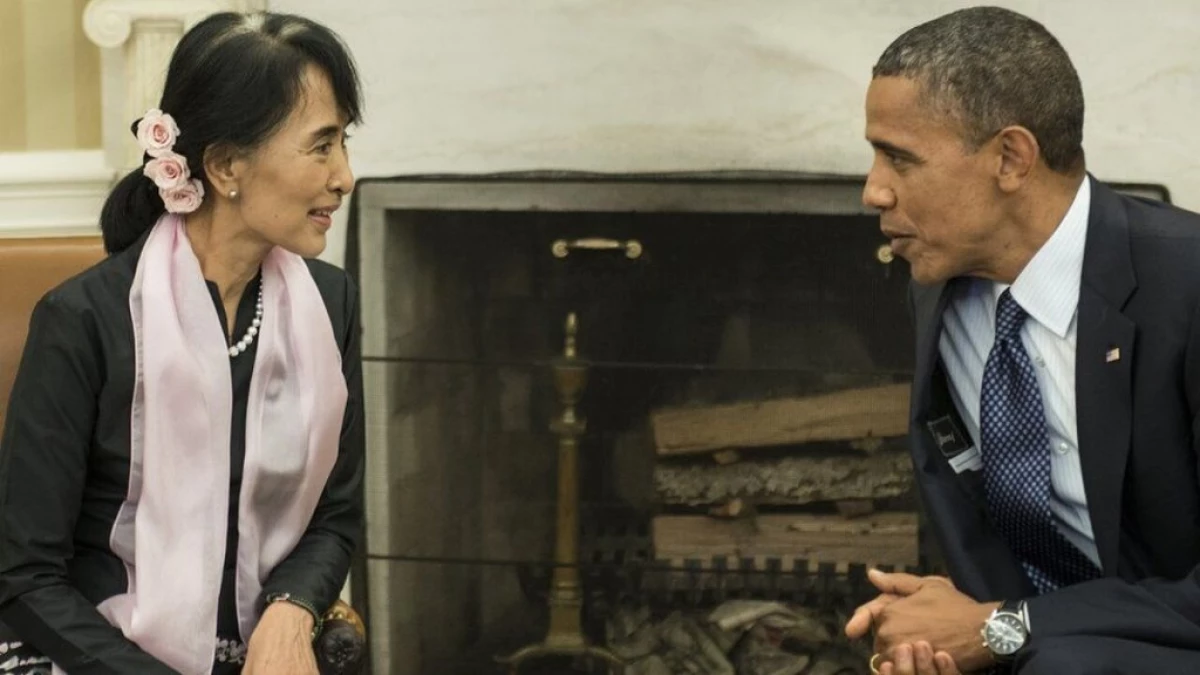
San Sud also became the face of Myanmar in Pophture - U2 wrote about her song Walk ON, and Luc Besson took off the film "Lady". In 2012, France presented a policy award of the Order of the Honorary Legion, and in several cities of Great Britain - the Freedom Award.
The reputation of the fighter for Democracy San SU collapsed after refusal to recognize Muslim Genocide in Myanmar
The reputation of the SU SU in the West strongly shaken in 2019, when she rejected the UN's accusations in Muslim Genocide in Myanmar. The persecution of Muslims Rokhinja in the country spoke long ago - minorities are opposed, live in camps, devoid of citizenship by military junta. The UN has created a special mission to address the problems of the staff of Rakhaine, since 2016 calling the government to start resolving problems in the region.
In 2017, in Rakhayn, where about a million Rokhinja lives, the conflict was aggravated - the rebels attacked the police station. During the collision, about 70 people were killed, including 12 security workers. The confrontation for several years, the confrontation forced about 730 thousand Rokhinja to escape to Bangladesh - to the world's largest refugee camp.
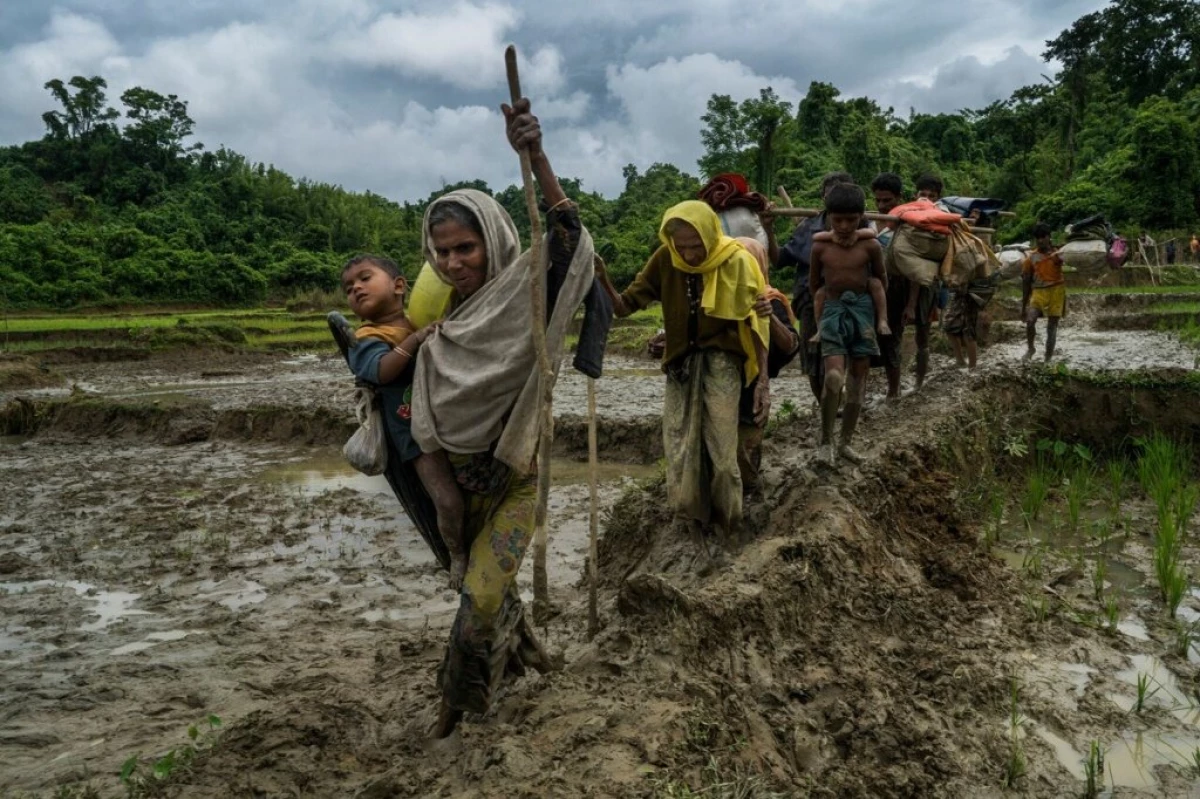
Refugees were told that the government troops killed Rokhinja and burned whole villages, throwing bombs on them with incendiary mixtures from helicopters. According to Rohintj, the military massively raped women and flawed the elderly. The violence against Muslim minority Myanmar was confirmed by the military. They said that the authorities ordered "to kill everyone who you see, be it kids or adults" - tens of ties were buried in fraternal graves, which was confirmed by the locals.
Organization "Doctors Without Borders", according to refugee testimony, estimated that only a month in 2017, the military shot and burned around 6700 Rohinja in homes, including 730 children. It is impossible to be called the exact number of killed, as the authorities limited access to cancer. About 200 villages in the region completely destroyed.
However, military junta and representatives of the ruling party "National League for Democracy" rejected the charges. The authorities stated that among Rokhinzha there are many terrorists, and "Muslims themselves killed their own people." The burned villages of the authorities were explained by the fact that Rokhinja may have destroyed their homes themselves so that they sympathize with the international community.
In 2019, the UN called what was happening in Rakhain "Genocide" of the Muslim minority. In the Hague Court San Sud rejected the accusations, fully supporting the position of military Myanmar. The politician stated that the soldiers could use "disproportionate strength" to the local, and also, perhaps, "not clearly distinguished by" local Muslim rebels and civilians.
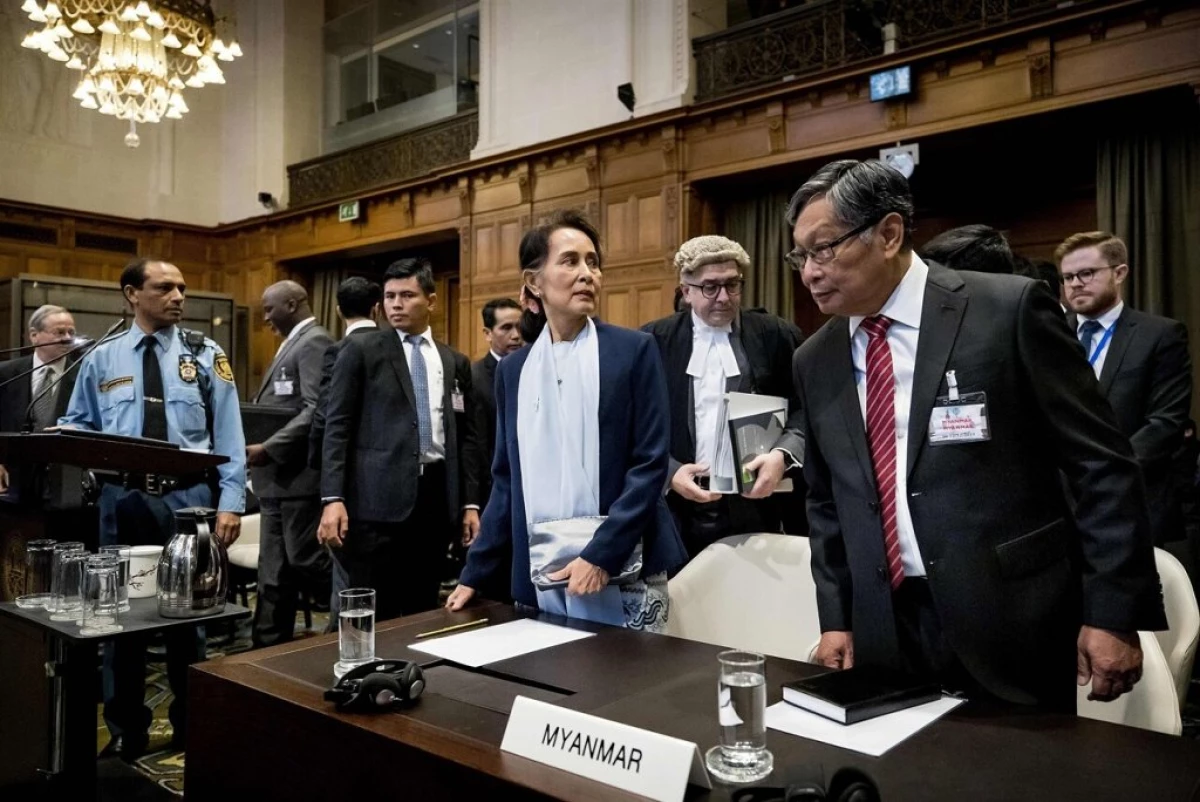
According to San Su, what is happening in Rakhaine is "cleaning terrain from rebels or terrorists." The politician noted that "if war crimes were committed, they will be prosecuted in our military justice system." In 2020, UN Court ordered Myanmar to defend Rokhinja.
The position of the SU SU in the case of the genocide disappointed the international community, which was considered by its fighter for equality and democracy. Canada and France deprived her title of an honorary citizen, and the United Kingdom - seven awards issued for "peaceful resistance in the face of oppression."
SU SU defenders suggest that politician does not protect Rokhinja due to the pressure of the military in the government. It is also noted that the Buddhist majority in the country considers the Muslim minority with illegal migrants, and their support can cost her a political career, which was given with great difficulty.
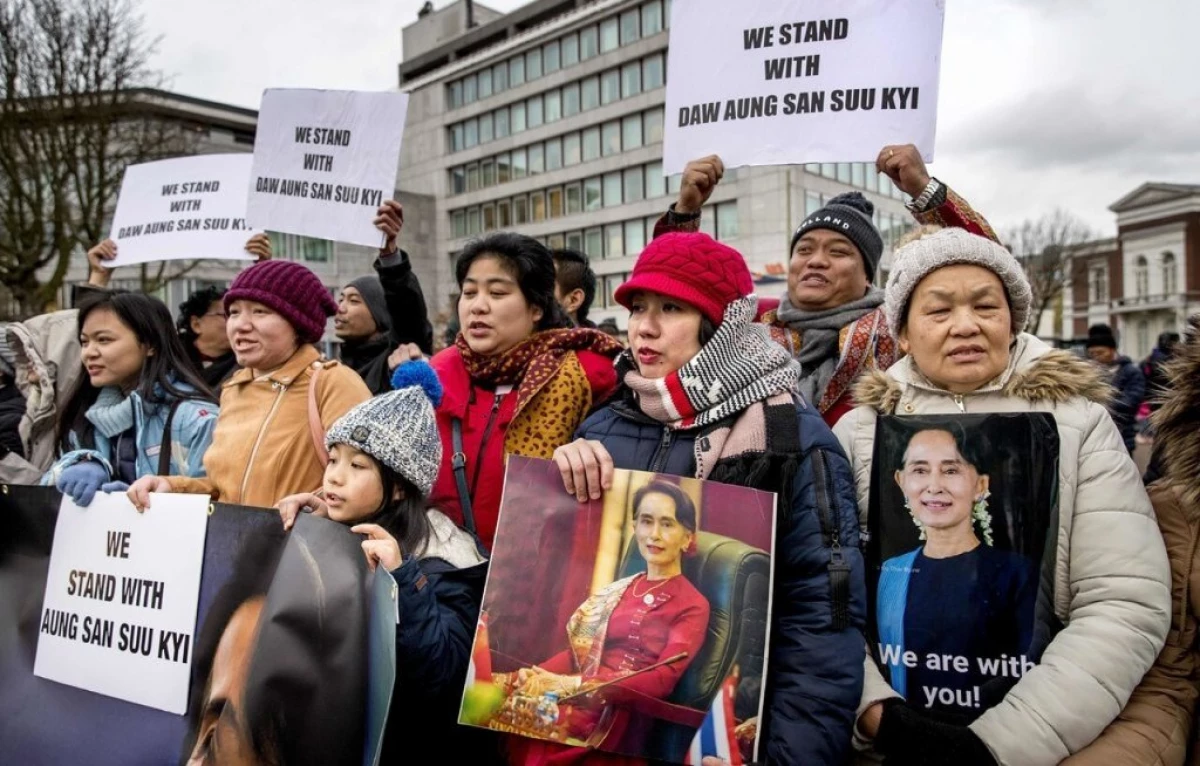
New military coup
The condemnation of the West has become not the last problem in a political career of 75-year-old San Su. In November 2020, Parliamentary elections were held in Myanmar, in which the ruling party again won. The "National League for Democracy" received 396 places from 476, and the military batch got only 33 places in parliament. Then the military junta declared falsifications in the elections, but on January 29, 2021, the Meanmar's electoral commission denied the accusations.
The main military Myanmar since 2011 Min Aun Hlain, possibly involved in the genocide, was indignant by the decision of the Commission, stating that if the country's constitution is not respected by politicians, it needs to be canceled. From words the military moved to action - on February 1 a few hours before the first parliamentary meeting of the new term they detained the president of Myanmar wines of Miin and San Sud with members of the Democratic Party.
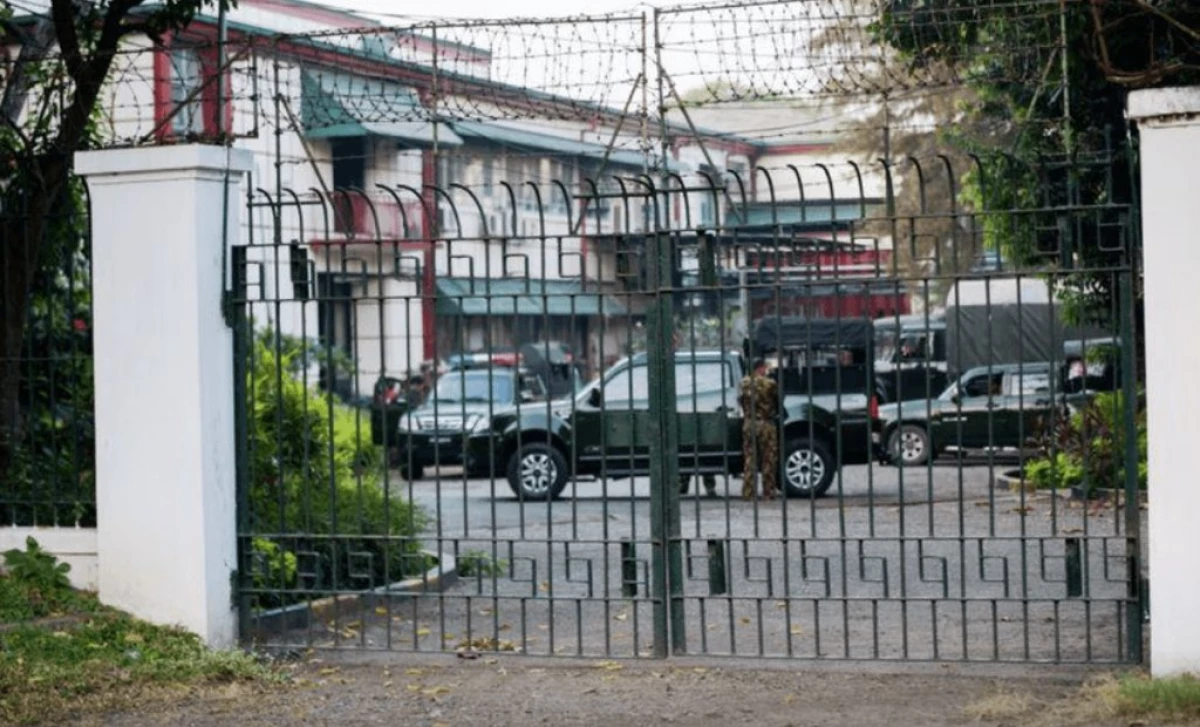
The power was handed over Mini Zlain, and also declared a state of emergency for a year. After the detention of Miin's wines and San SU ceased broadcasting state television, problems with communication and the Internet were observed, the banks were suspended on the day. In the capital, the checkpoints with the military, cars with the military are moving along the streets.
The party called on the inhabitants of Myanmar, do not put up with a military coup and go to protests. Party supporters fear that what is happening can return the country to military dictatorship. "The doors have just opened to another, almost certainly a more dark future," said the historian Tan Mient-y.
Min Aun Hlain could go to a military coup not because of the falsification of the elections, as he declares, and due to the reluctance to retire after six months, the director of the London Human Rights Burma Campaign UK Mark Pharmor believes. Former political prisoner Myanmar and the head of the analytical center of Yangon Khin Zau Vosv noted that the military coup was expecting, but he could not solve it by negotiating the ruling and military parties. "This is the only coup that could be prevented politically. The question was not that if he would happen], and when, "the wines added.
Against the seizure of power and for the liberation of prisoners in Myanmar, UN, USA, Australia, United Kingdom, European Union, India and Japan.
# Asia # politics # protests
A source
